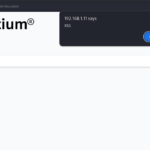Two common approaches to strengthening your cybersecurity are vulnerability scanning and penetration testing. While they may seem similar, they have distinct purposes and outcomes. Understanding these differences can help you make the right choice for your organization.
Many cyber security service providers call vulnerability scanning a penetration testing. If you are an organization, read this article and know the difference before choosing the right service.
Here is a quick comparison:

What Is Vulnerability Scanning?
Vulnerability scanning or vulnerability assessment is an automated process to identify known system, network, or application weaknesses. Even if it is an automated process, some experienced cyber security service providers verify them manually.
Key Characteristics
- Goal: Detect vulnerabilities like outdated software, misconfigurations, and missing patches.
- Methodology: Automated tools are used to scan systems and produce a list of vulnerabilities.
- Focus: Surface-level assessment without attempting to exploit weaknesses.
- Outcome: Provides a report of vulnerabilities with severity ratings and remediation suggestions.
Common Tools Used for Vulnerability Scanning
- Nessus, OpenVAS, Qualys, NetSparker, and Rapid7.
The Process
The vulnerability scanning process is a little bit different from the penetration testing:
- Asset Discovery: Asset discovery is the first step in identifying devices and systems within the network.
- Vulnerability Scanning: Use open-source or commercial tools to scan for weaknesses and misconfigurations.
- Report Generation: Provide a report with findings and recommendations based on severity and risks.
- Remediation Guidance: Suggest fixes and updates for addressing vulnerabilities.
Use Cases
- Routine compliance checks and security audits.
- Identifying unpatched systems and outdated software.
- Baseline assessments before deeper testing.
- Quick security checking for low cost.
Need a security assessment service?
Need a simple vulnerability scanning service or deeper analysis of security like penetration testing?
+1 307 392 4577
What Is Penetration Testing?
Penetration testing (pen testing) goes beyond scanning by actively exploiting vulnerabilities to determine their impact. Most of the time, penetration testing requires manual testing since exploitation of the discovered vulnerabilities is involved.
Key Characteristics
- Goal: Simulate real-world attacks to exploit weaknesses and test defenses.
- Methodology: Combines manual techniques and ethical hacking tools to test vulnerabilities.
- Focus: Deeper analysis, including privilege escalation and lateral movement.
- Outcome: Provides a detailed report with exploited vulnerabilities, their impact, and remediation strategies.
Standard Tools Used For Penetration Testing
- Metasploit, Burp Suite, SQLmap, and Hydra.
The Process
Here is the standard process for penetration testing:
- Planning and Scoping: Define objectives, scope, and rules of engagement.
- Reconnaissance(Passive and Active): Gather enough information about the target systems. Applications and networks.
- Scanning and Enumeration: Identify vulnerabilities and potential entry points. Open-source or commercial tools are usually used.
- Exploitation: Attempt to exploit identified weaknesses to demonstrate risk, such as exploiting weak passwords or application vulnerabilities such as Remote command injection.
- Reporting: Provide a comprehensive report detailing vulnerabilities, exploits, and remediation strategies.
Use Cases
- Testing web applications, APIs, and network security.
- Evaluating access controls and privilege escalation risks.
- Compliance requirements.
- Strengthening security.
- Simulating real-world attack scenarios for risk assessment.
Which One Should You Choose?
It completely depends on your goals and requirements:
- If you need quick security assessment at a low cost, choose vulnerability scanning.
- And if you need deeper security analysis, then choose penetration testing.
Whom Should You Hire?
It has never been an easy task to hire the right service provider. Many look at some general marketplaces for freelance cyber security experts, as they think MSSP(Managed Security Service Provider) seems to be expensive.
We recommend selecting someone certified and with hands-on experience in discovering and exploiting vulnerabilities, using tools, and manually. Best to partner with a proven cybersecurity service provider like Bytium.
Bytium LLC offer a variety of cybersecurity and IT services which can be ordered at https://portal.bytium.com





